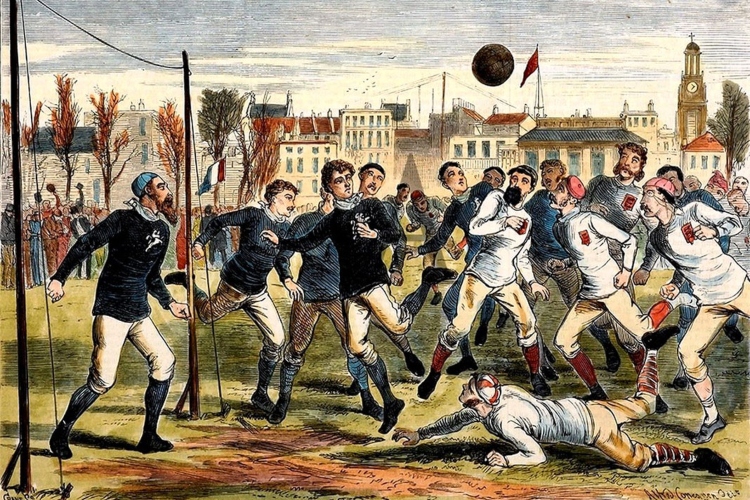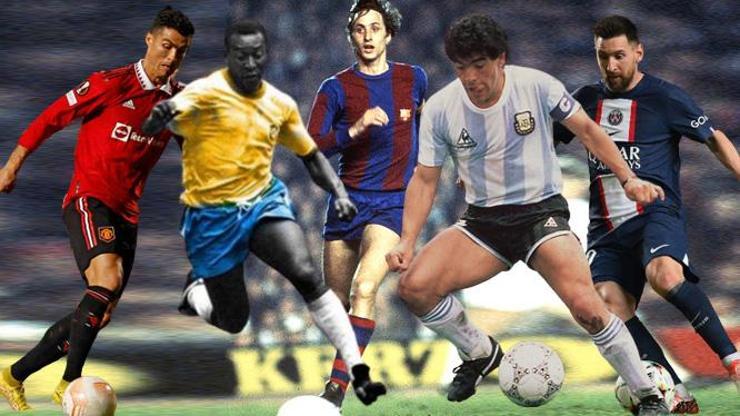The Evolution of Football: A Journey Through History
The Evolution of Football: A Journey Through History

Football, known as soccer in some parts of the world, is not just a game; it's a global phenomenon that unites people across borders, cultures, and languages. Its history is a fascinating tale of evolution, innovation, and passion that spans centuries. From its humble beginnings to its status as the world's most popular sport, football's journey is filled with remarkable stories and pivotal moments that have shaped its identity. In this comprehensive exploration, we will delve into the rich tapestry of football history, tracing its origins, major milestones, and enduring legacy.
Origins and Early Beginnings
The origins of football can be traced back to ancient civilizations, where various forms of ball games were played as early as 3000 BCE. These primitive games, which involved kicking a ball made of animal skins or inflated bladders, were prevalent in ancient China, Greece, Rome, and Mesoamerica. While these games shared similarities with modern football, they lacked standardized rules and were often violent and chaotic.
It was in medieval Europe that football began to take on a more recognizable form. In England, a game known as "mob football" gained popularity in the 12th century. Played between rival villages or towns, mob football was a rough and unruly affair, with hundreds of players vying to control an inflated pig's bladder and score goals by any means necessary. Matches often descended into mass brawls, leading authorities to ban the game on numerous occasions.
Despite attempts to suppress it, football continued to thrive in England, evolving into different regional variations with their own sets of rules. One of the most significant developments occurred in the 19th century with the emergence of public schools and universities as centers of football activity. These institutions codified the rules of the game, paving the way for the establishment of organized football clubs and competitions.
The Birth of Modern Football
The year 1863 marked a watershed moment in the history of football with the formation of The Football Association (FA) in England. The FA drew up the first official set of rules, known as the Laws of the Game, which standardized the playing field and introduced concepts such as offside and fouls. This landmark event laid the foundation for modern football and set the stage for its rapid expansion.
The spread of football was facilitated by the growth of industrialization and urbanization in the 19th century, as factories and mines provided venues for workers to play and socialize. Football clubs began to emerge across England, representing local communities and industries. The establishment of the Football League in 1888, the world's first professional football competition, further fueled the sport's popularity and commercialization.
Meanwhile, football was making its mark beyond British shores. The game spread to other parts of Europe through trade and colonialism, taking root in countries such as Scotland, France, Germany, and Italy. In South America, British expatriates introduced football to countries like Brazil, Argentina, and Uruguay, where it quickly captured the imagination of the masses.
The Age of Globalization
The 20th century saw football evolve into a truly global sport, transcending geographical and cultural boundaries. The FIFA World Cup, inaugurated in 1930, emerged as the pinnacle of international football, bringing together nations from around the world to compete for glory. The tournament became a symbol of unity and solidarity, showcasing the universal appeal of the beautiful game.
The post-war period witnessed unprecedented growth in football, fueled by advances in technology, media, and transportation. The introduction of television broadcasts allowed fans to watch matches live from the comfort of their homes, while air travel made international competitions more accessible than ever before. Football became a source of national pride and identity, with success on the field carrying political and social significance.
The emergence of superstar players such as Pelé, Diego Maradona, and Johan Cruyff further elevated football's status, turning them into global icons and ambassadors for the sport. Their skill, charisma, and personality captivated audiences worldwide, inspiring generations of aspiring footballers and fans.
Challenges and Controversies
Despite its widespread popularity, football has not been immune to controversy and challenges. Issues such as corruption, match-fixing, and doping have plagued the sport, tarnishing its reputation and integrity. Organizations like FIFA have faced allegations of misconduct and mismanagement, leading to calls for reform and transparency.
Additionally, football has grappled with social and political issues, including racism, sexism, and inequality. Despite efforts to promote inclusivity and diversity, these issues continue to persist in stadiums and on the field, highlighting the need for greater awareness and action.
The Future of Football
As we look ahead, the future of football is filled with both excitement and uncertainty. The sport continues to evolve with advances in technology and sports science, leading to innovations in training, tactics, and player performance. The rise of esports and virtual reality has opened up new avenues for fan engagement and participation, blurring the lines between the real and virtual worlds.
Moreover, football's role in society is evolving, with an increased emphasis on sustainability, social responsibility, and community engagement. Initiatives such as the Football for Good movement aim to harness the power of the sport to drive positive change and tackle pressing global issues.
In conclusion, the history of football is a testament to its enduring appeal and significance. From its humble beginnings to its status as a global cultural phenomenon, football has captivated the hearts and minds of billions of people around the world. As we celebrate its past achievements and look forward to its future, one thing remains certain: the beautiful game will continue to inspire and unite us for generations to come.

Kaynakça
- ^ a b c d e "History of Football". FIFA. 6 Ekim 2014 tarihinde kaynağından arşivlendi. Erişim tarihi: 29 Nisan 2013.
- ^ He, Jin (2001). An Analysis of Zhan Guo Ce (İngilizce). Pekin: Peking University Press. ss. 59-82. ISBN 7-301-05101-8.
- ^ Witzig, Richard (2006). The Global Art of Soccer (İngilizce). CusiBoy Publishing. s. 5. ISBN 9780977668809. 10 Aralık 2014 tarihinde kaynağından arşivlendi. Erişim tarihi: 22 Ağustos 2015.
- ^ Guttmann, Allen ve Thompson, Lee Austin (2001). Japanese sports: a history (İngilizce). University of Hawaii Press. ss. 26-27. ISBN 9780824824648. 10 Aralık 2014 tarihinde kaynağından arşivlendi. Erişim tarihi: 22 Ağustos 2015.
- ^ Thibert, Jacques ve Réthacker, Jean-Philippe; ss. 13
- ^ Thibert, Jacques ve Réthacker, Jean-Philippe; ss. 14
- ^ Historia Brittonum, 41. bölüm
- ^ a b c "istory of Football – Britain, the home of Football" (İngilizce). FIFA. 1 Temmuz 2007 tarihinde kaynağından arşivlendi. Erişim tarihi: 26 Kasım 2014.
- ^ Orejan, Jaime (2011). Football/Soccer: History and Tactics. McFarland. s. 18. ISBN 978-0-7864-4784-8.
- ^ Magee, Jonathan; Caudwell, Jayne; Liston, Kate; Scraton, Sheila, (Ed.) (2007). Women, Football and Europe: Histories, Equity and Experience (İngilizce). Meyer & Meyer Sport. ss. 6. ISBN 9781841262253.
- ^ Jusserand, Jean-Jules (1901). Le sport et les jeux d'exercice dans l'ancienne France (Fransızca). s. 266.
- ^ Jusserand, Jean-Jules (1901). Le sport et les jeux d'exercice dans l'ancienne France (Fransızca). s. 272.
- ^ Halpern, J. (Ağustos 2008). "Balls and Blood". Sports Illustrated (İngilizce), 109. sayı. ss. ss. 42.
- ^ Bardi, Cosimo (1580). Discorso sopra il giuoco del calcio fiorentino del Puro Accademico Alterato (İtalyanca). Floransa.
































